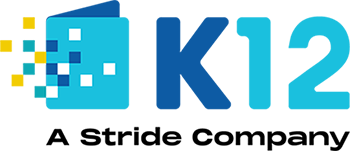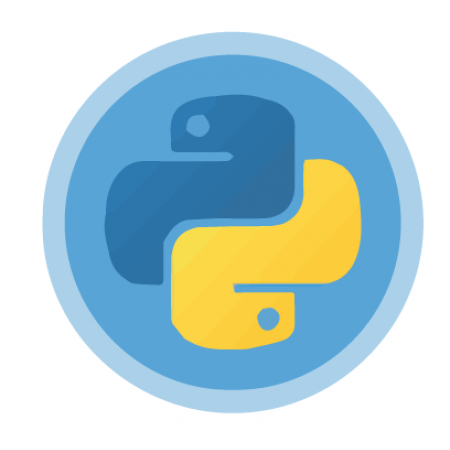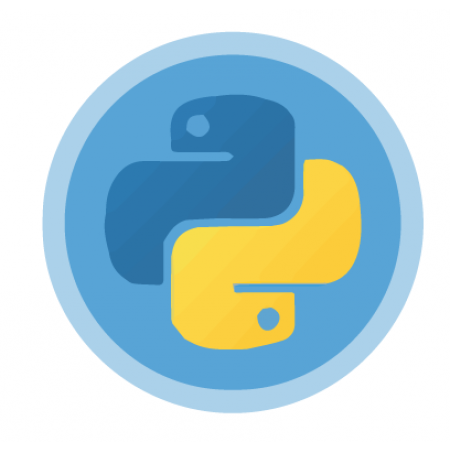x
Search results for 'earth science'
Show Filter
Video Game Design 1 Semester 1 (Project Based Learning)
The CodeHS video game design curriculum teaches the foundations of creating video games in JavaScript. The course utilizes a project-based learning approach. The content is fully web-based, with students writing and running code in the browser. Lessons consist of video tutorials, short quizzes, example programs to explore, and written programming exercises, adding up to over 100 hours of hands-on programming practice in total. Students write and run JavaScript programs in the browser using the CodeHS editor.
$450.00
Web Design 1 (Project Based Learning)
Web Design 1 is a CodeHS course that teaches students how to build their own web pages. Students will learn the languages HTML and CSS, and will create their own live homepages to serve as portfolios of their creations. By the end of this course, students will be able to explain how web pages are developed and viewed on the Internet, analyze and fix errors in existing websites, and create their very own multi page websites. Students will learn the foundations of user interface design, rapid prototyping and user testing, and will work together to create professional, mobile responsive websites. The course utilizes a project-based learning approach. The content is fully web-based, with students writing and running code in the browser. Lessons consist of video tutorials, short quizzes, example programs to explore, and written programming exercises.$450.00
Astronomy 2
Building upon the prior prerequisite course, dive deeper into the universe and develop a lifelong passion for space exploration and investigation. Become familiar with the inner and outer planets of the solar system as well as the sun, comets, asteroids, and meteors. Additional topics include space travel and settlements as well as the formation of planets.$450.00
Astronomy 1
Follow your enthusiasm for space by introducing yourself to the study of astronomy. This course will include topics such as astronomy’s history and development, basic scientific laws of motion and gravity, the concepts of modern astronomy, and the methods used by astronomers to learn more about the universe. Further knowledge is gained through the study of galaxies, stars, and the origin of the universe.$450.00
Introduction to the Internet
TCH006E2 Introduction to the Internet is a CodeHS introductory computer science course that teaches the basics of designing a web page, and how information is represented digitally and sent over the Internet. Students will create a personal portfolio website showing projects they build throughout the course. With a unique focus on creativity, problem solving and project based learning, Introduction to the Internet gives students the opportunity to explore several important topics of computing using their own ideas and creativity to develop an interest in computer science that will foster further endeavors in the field. Each lesson includes at least one formative short multiple-choice quiz. At the end of each unit, students take a summative multiple choice unit quiz that assesses their knowledge of the concepts covered in the unit.$450.00
AP® Environmental Science Semester 2
The course provides students with the scientific principles, concepts, and methodologies required to understand the interrelationships of the natural world. The course draws upon various disciplines, including geology, biology, environmental studies, environmental science, chemistry, and geography in order to explore a variety of environmental topics. Topics explored include natural systems on Earth; biogeochemical cycles; the nature of matter and energy; the flow of matter and energy through living systems; populations; communities; ecosystems; ecological pyramids; renewable and nonrenewable resources; land use; biodiversity; pollution; conservation; sustainability; and human impacts on the environment. AP Environmental Science prepares students for the AP exam and for further study in science, health sciences, or engineering.
The AP Environmental Science course provides a learning experience focused on allowing students to develop their critical thinking skills and cognitive strategies. Scientific inquiry skills are embedded in the direct instruction, wherein students learn to ask scientific questions, deconstruct claims, form and test hypotheses, and use logic and evidence to draw conclusions about the concepts.
Students perform hands-on labs and projects that give them insight into the nature of science and help them understand environmental concepts, as well as how evidence can be obtained to support those concepts. Virtual lab activities enable students to engage in investigations that would otherwise require long periods of observation at remote locations and to explore simulations that enable environmental scientists to test predictions. During both hands-on and virtual labs, students form hypotheses; collect, analyze, and manipulate data; and report their findings and conclusions. Throughout this course, students are given an opportunity to understand how biology, earth science, and physical science are applied to the study of the environment and how technology and engineering are contributing solutions for studying and creating a sustainable biosphere.
$450.00
AP® Environmental Science Semester 1
The course provides students with the scientific principles, concepts, and methodologies required to understand the interrelationships of the natural world. The course draws upon various disciplines, including geology, biology, environmental studies, environmental science, chemistry, and geography in order to explore a variety of environmental topics. Topics explored include natural systems on Earth; biogeochemical cycles; the nature of matter and energy; the flow of matter and energy through living systems; populations; communities; ecosystems; ecological pyramids; renewable and nonrenewable resources; land use; biodiversity; pollution; conservation; sustainability; and human impacts on the environment. AP Environmental Science prepares students for the AP exam and for further study in science, health sciences, or engineering.
The AP Environmental Science course provides a learning experience focused on allowing students to develop their critical thinking skills and cognitive strategies. Scientific inquiry skills are embedded in the direct instruction, wherein students learn to ask scientific questions, deconstruct claims, form and test hypotheses, and use logic and evidence to draw conclusions about the concepts.
Students perform hands-on labs and projects that give them insight into the nature of science and help them understand environmental concepts, as well as how evidence can be obtained to support those concepts. Virtual lab activities enable students to engage in investigations that would otherwise require long periods of observation at remote locations and to explore simulations that enable environmental scientists to test predictions. During both hands-on and virtual labs, students form hypotheses; collect, analyze, and manipulate data; and report their findings and conclusions. Throughout this course, students are given an opportunity to understand how biology, earth science, and physical science are applied to the study of the environment and how technology and engineering are contributing solutions for studying and creating a sustainable biosphere.
$450.00
Introduction to Robotics 1 (Project Based Learning)
This course is a Project Based Learning course (PBL). Are you fascinated with how machines work? Robots are machines, and they are all around us, from helping doctors in surgeries to helping to keep our homes clean. Explore the physics, mechanics, motion, and the engineering design and construction aspects used to develop robots. Learn how models are created through both sketches and software. Discover STEM careers and the education needed to enter this high-demand field.$450.00
Computer Science Principles (Project Based Learning)
TCH220E2-PBL Computer Science Principles is a CodeHS course that introduces students to the foundational concepts of computer science and explores the impact computing and technology have on our society. The course utilizes a project-based learning approach. With a unique focus on creative problem solving and real-world applications, the CodeHS Computer Science Principles course gives students the opportunity to explore several important topics of computing using their own ideas and creativity, use the power of computing to create artifacts of personal value, and develop an interest in computer science that will foster further endeavors in the field.$450.00
AP® Computer Science Principles Semester 2
AP Computer Science Principles is a CodeHS course that introduces students to the foundational concepts of computer science and explores the impact computing and technology have on our society.
With a unique focus on creative problem solving and real-world applications, AP Computer Science Principles gives students the opportunity to explore several important topics of computing using their own ideas and creativity, use the power of computing to create artifacts of personal value, and develop an interest in computer science that will foster further endeavors in the field.
Each unit of the course is broken down into lessons. Lessons consist of video tutorials, short quizzes, example programs to explore, written programming exercises, free response exercises, collaborative creation projects, and research projects. College Board has launched the AP Classroom, a new resource for teachers with summative and formative assessments. At the end of each unit, we recommend that teachers give students the corresponding Personal Progress Check to understand student strengths and weaknesses.
$450.00
AP® Computer Science Semester 2
AP Computer Science A is a CodeHS course that introduces students to computer science through programming. Fundamental topics in this course include the design of solutions to problems, the use of data structures to organize large sets of data, the development and implementation of algorithms to process data and discover new information, the analysis of potential solutions, and the ethical and social implications of computing systems. The course emphasizes object-oriented programming and design using the Java programming language. The CodeHS AP Computer Science A course is a year-long course designed to help students master the basics of Java and equip them to successfully pass the College Board AP Computer Science A Exam at the end of the school year. Lessons consist of video tutorials, short quizzes, example programs to explore, and written programming exercises, adding up to over 100 hours of hands-on programming practice in total. Several units have free response questions that have students consider the applications of programming and incorporate examples from their own lives. College Board has launched the AP Classroom, a new resource for teachers with summative and formative assessments. At the end of each unit, we recommend that teachers give students the corresponding Personal Progress Check to understand student strengths and weaknesses.$450.00
NEED MORE INFO

THANK YOU!
We have received your inquiry and you will start to receive additional information about our school offerings and programs. An enrollment consultant will contact you shortly.



The CodeHS video game design curriculum teaches the foundations of creating video games in JavaScript. The course utilizes a project-based learning approach. The content is fully web-based, with students writing and running code in the browser. Lessons consist of video tutorials, short quizzes, example programs to explore, and written programming exercises, adding up to over 100 hours of hands-on programming practice in total. Students write and run JavaScript programs in the browser using the CodeHS editor.